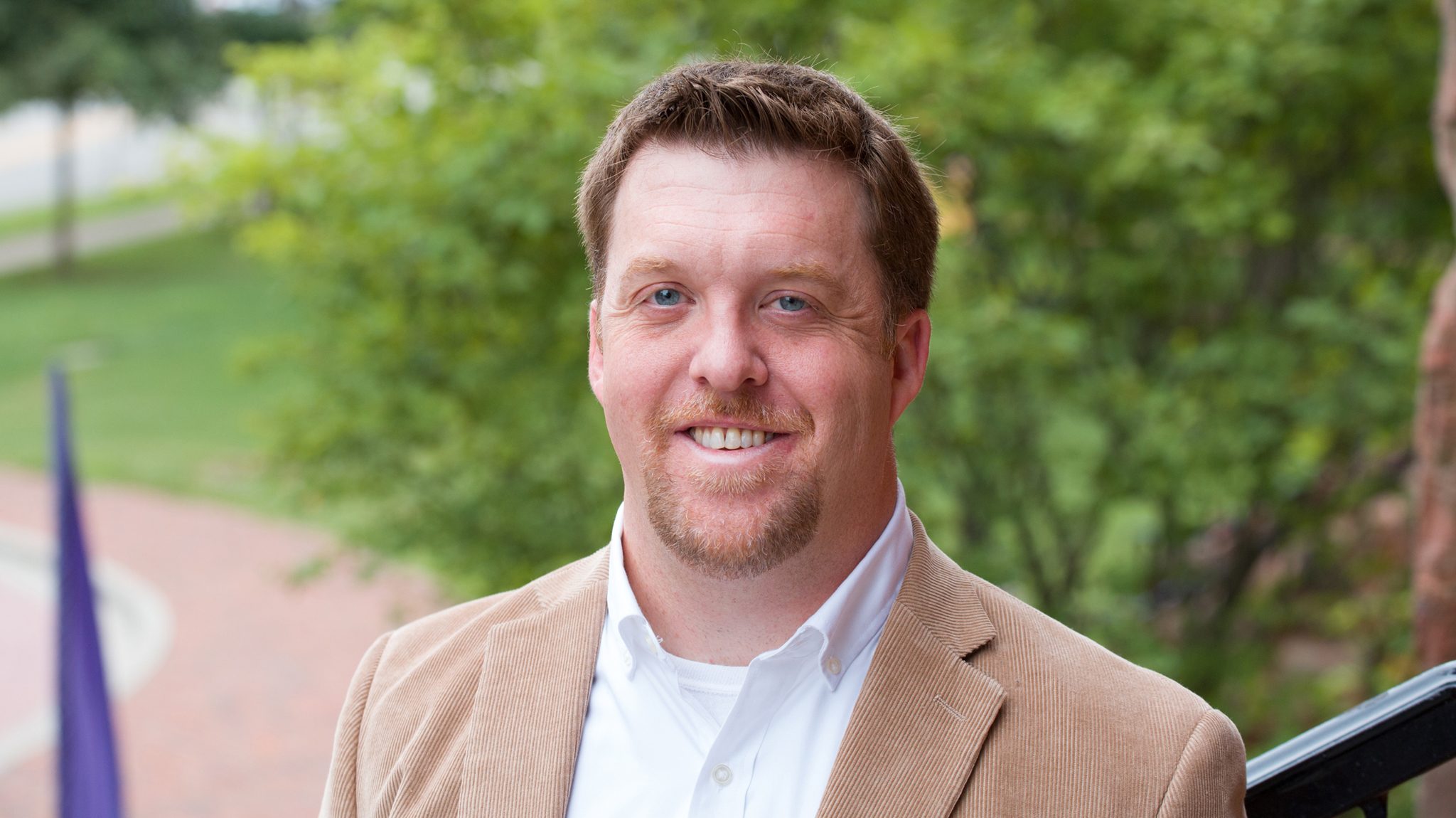
Josh Eyler is the new director of faculty development at the University of Mississippi. Submitted photo
OXFORD, Miss. – Josh Eyler has been hired as the director of faculty development at the University of Mississippi.
The position is part of the university’s new Academic Innovations Group, or AIG, a unit working to improve and innovate teaching and learning at the university and responsible for fulfilling the goals of ThinkForward, the university’s new Quality Enhancement Plan focusing on critical thinking.
AIG includes the Center for Excellence in Teaching and Learning, the Office of Academic Innovation, the Personalized Learning and Adaptive Teaching Opportunities program and Eyler’s position, where he is initially focusing on initiatives connected to ThinkForward.
Eyler joined Ole Miss last week. He previously was at Rice University’s Center for Teaching Excellence, where he most recently served as executive director overseeing programs and services designed to support and enhance teaching and learning. He also was an adjunct associate professor of humanities.
“The mission of the University of Mississippi aligns perfectly with my perspective on the power and meaning of education,” Eyler said. “Also, the community of faculty and staff here is very impressive. They are truly committed in equal parts to student success, effective teaching and advancements in research.
“I have spent the bulk of my career at research universities, and I have come to see teaching and research as powerful partners in higher education.
“I look forward to learning more about what faculty are interested in with respect to evidence-based teaching strategies and then to collaborating with them and with my colleagues in the Academic Innovations Group to create interactive programs that are grounded in the latest research on effective pedagogies and on how people learn.”
Beyond his duties as director of faculty development and working on the university’s Quality Enhancement Plan, Eyler also is serving as a lecturer of writing and rhetoric.
“We are excited to welcome Dr. Josh Eyler to the University of Mississippi campus,” said Robert Cummings, UM executive director of academic innovation and associate professor of writing and rhetoric. “Josh is truly an exceptional and talented scholar, with a passion for teaching and helping others improve their teaching.”
A 2000 graduate of Gettysburg College with a bachelor’s in English, Eyler later earned his master’s and doctoral degrees in medieval studies at the University of Connecticut. His emphasis for both degrees was in medieval English language and literature.
Eyler is the author of “How Humans Learn: The Science and Stories Behind Effective College Teaching,” which was published last year and featured in publications such as The Chronicle of Higher Education. The Los Angeles Review of Books called it “a splendid repository of ways to rethink how we teach college.”
“Any who have read his new book will know that Josh embodies the curiosity and habits of mind we hope to instill in students and hope to share in our community,” Cummings said. “Josh will be the university’s point person for improving effectiveness in teaching and learning.
“As a scholar and teacher, Josh will serve as a leader in our faculty community and enable other faculty to explore their fullest potential in the classroom.”
Before Rice, Eyler served as associate director of the Center for Teaching and Faculty Excellence at George Mason University, where he also was an affiliate associate professor of English.
Eyler also has worked as an assistant professor of English at Columbus State University and as a teaching assistant and instructor of record at the University of Connecticut while working toward his graduate degrees.
His extensive experience in the classroom ranges from teaching writing while at Connecticut to instructing graduate-level courses on teaching and learning while at Rice.
A native of Hanover, Pennsylvania, Eyler’s move into working on teaching and faculty excellence was a product of him following his curiosity.
“I wanted to learn more about teaching methodologies, not just in my discipline but across higher education as well,” he said. “I was, and still am, fascinated by the range of strategies instructors use to help their students succeed in and beyond the classroom, and I always want to know more about the biological and psychological frameworks for learning.
“Finally, I wanted to contribute to the larger conversation we have in higher education about these issues. I have enjoyed this phase of my career immensely, and I look forward to my work at UM.”